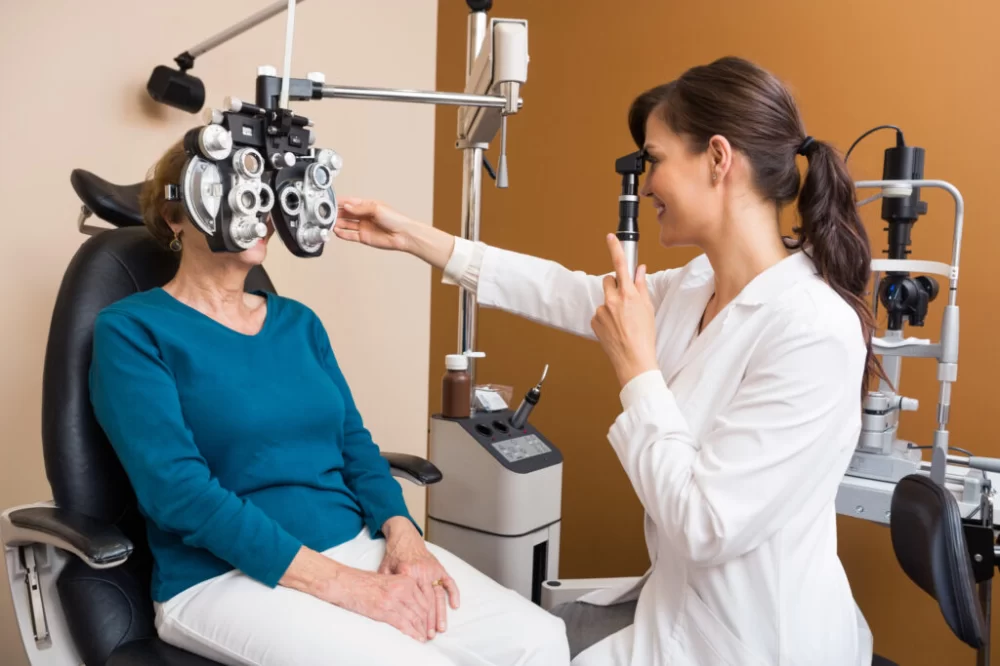
- Understanding Medicare Coverage for Eye Care
- How to Find Local Optometrists Who Accept Medicare
- Important Factors When Choosing an Optometrist
- Real-Life Examples and Stories
- Why Eye Docs Should Be Your First Choice
1. Understanding Medicare Coverage for Eye Care
Medicare provides a broad range of healthcare benefits for seniors, but many people are often unclear about the specifics of Medicare's coverage when it comes to eye care. In general, Medicare covers eye exams and vision services under two parts: Medicare Part B and Medicare Advantage (Part C). However, it is important to understand what is covered and under what circumstances.
Medicare Part B primarily covers eye exams for people with certain medical conditions like diabetes or if you're at high risk for eye diseases such as glaucoma. Routine eye exams for things like glasses or contact lenses typically aren’t covered unless you have a specific medical condition. Medicare Advantage plans often offer expanded vision care benefits, including coverage for routine eye exams and eye glasses, depending on the plan.
2. How to Find Local Optometrists Who Accept Medicare
Finding local optometrists who accept Medicare can seem overwhelming, but there are several ways to make the process easier. Here’s how you can get started:
- Check the Medicare Website: The official Medicare website offers a tool to help you search for healthcare providers, including optometrists who accept Medicare. You can filter your search by location to find professionals in your area.
- Ask for Referrals: Your primary care doctor or a local pharmacy may have recommendations for optometrists who accept Medicare. It’s always a good idea to ask friends or family members who have used Medicare for eye care.
- Contact Optometrists Directly: Once you have a list of potential optometrists, call them directly to confirm that they accept Medicare. It’s important to verify this beforehand to avoid surprises during your visit.
- Look for Medicare Advantage Plans: If you're enrolled in a Medicare Advantage plan, check with your plan provider to see if they have a list of in-network optometrists.
3. Important Factors When Choosing an Optometrist
Once you've narrowed down your options, it’s crucial to choose an optometrist that fits your specific needs. Here are some factors to consider:
- Location: Make sure the optometrist is conveniently located, especially if you need to visit them regularly.
- Specialties: Some optometrists specialize in specific types of care, such as managing eye diseases, providing corrective lenses, or offering pediatric services. Make sure the optometrist offers the services you need.
- Office Hours and Availability: Check if the office hours work with your schedule. You might want to consider a practice with evening or weekend appointments if necessary.
- Patient Reviews: Look for reviews from other patients to get a sense of the quality of care. Positive feedback from patients can indicate that the optometrist is knowledgeable and compassionate.
4. Real-Life Examples and Stories
One of the best ways to understand the importance of finding the right optometrist is through real-life stories. Take, for instance, Karen, a senior citizen who was diagnosed with diabetes a few years ago. She needed regular eye exams to monitor for diabetic retinopathy, a common complication of diabetes that can affect vision. Karen was able to find an optometrist who accepted Medicare by asking her primary care doctor for a referral. Her optometrist not only provided excellent care but also helped her understand how her condition could affect her eyesight. This relationship gave Karen peace of mind knowing her vision was being carefully monitored.
Another story involves Tom, who was looking for an optometrist to help with his vision after turning 65. Tom knew he needed glasses but wasn’t sure where to start. After researching and contacting local optometrists, he found one who accepted his Medicare Advantage plan and was able to provide him with a comprehensive eye exam and prescription glasses at no extra cost. Tom was thrilled with the convenience of the process and highly recommends others follow similar steps to find an optometrist they can trust.
5. Why Eye Docs Should Be Your First Choice
At Eye Docs, we understand how important it is to find the right eye care professional who accepts Medicare. Our experienced optometrists offer a wide range of vision care services, including eye exams, prescription glasses, and contact lenses, all tailored to meet the needs of our Medicare patients. We make the process simple by accepting Medicare and offering personalized care to each individual. Whether you’re in need of routine vision care or specialized treatment, Eye Docs is here to help.
Choosing the right optometrist is essential for maintaining your eye health, and with the right resources, it doesn’t have to be a difficult task. By following these steps and considering your needs, you can ensure you find a local optometrist who accepts Medicare and provides excellent care. And if you’re looking for the best in eye care, don’t forget to check out Eye Docs for all your vision care needs.








